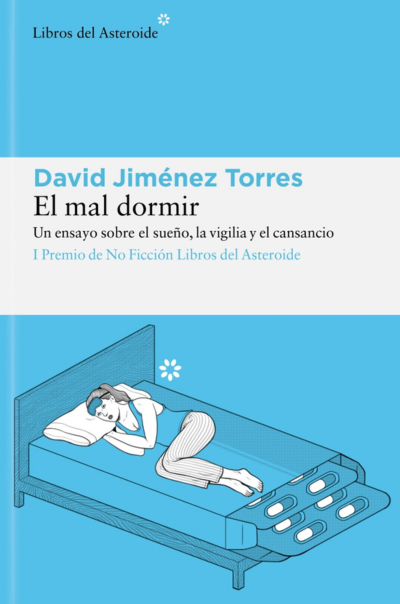BMW recently launched a campaign to pay homage to Dieter Zetsche, CEO’s of its competitor par excellence, Mercedes. He has left his post, partially due to the changes that are taking place in to automobile sector. Actually, we are talking of a huge revolution. This started with the apparition of diesel, and complicate making an objective forecast.
This transformation is mainly caused by the apparition of electric cars. It is curious that comparison Zetsche established between eMobility and a ketchup can: “You know that something is coming down, just not when or in what quantity”. As absurd as it may seem at first, the similarity is perfect: who is capable of predicting the development the electric car market with reasonable precision? In Spain, one can find around 63,000 vehicles of this kind, most of them in the Community of Madrid and Catalonia, according to the Spanish Electrical Network (REE) and the Spanish Federation of Municipalities and Provinces (FEMP). Though the number might not be as striking, according to the Spanish Association of Automobiles and Trucks Manufacturers (ANFAC) the sale of electric cars has rocketed, reaching 1,174, which means an increase of around 180 percent. Not to speak of the zero emissions of the capital city, that are causing great controversy and through only this kind of vehicles can circulate through. The measure constitutes, without doubt, an incentive for those whose are planning to buy an electric car, alike the fact of not having to pay for parking in Madrid for example. At the end, when it seems that we have all the info about the electric sector and a general vision of it, a new factor that changes the situation always rises.
The true dilemma that we are confronted with is whether electric cars are the solution to the circulation problems now presented to us, which are mostly two: the excess of vehicles and pollution. Rather than an alternative, it is a patch that will temporally solve the second problem, but not the first one.
The population increases every year, for which, if nothing is done about it, cities will not have the capacity to house to many cars. However, it is not enough, for example, a simple legal limitation to the sale of cars, since by so doing the freedom of citizens would be restricted. Freedom that is also breached, by the reported incentives from the State to get electric cars, which indirectly oblige us to buy them. On top of that, not every citizen can nowadays afford them, for the measures could be discriminatory: the rich can acquire them, circulate everywhere and pay no parking, but the poor remain with their polluting cars, only available for certain places and paying parking. The tax rise on standard cars is, after all, a violation of individual freedom.
The problem consists on the image we are offered of both types of transport. The electric car sounds good: a commitment with the environment. The fact is, the attractions to by these cars, apart from reducing consumers liberty, are self-defeating. It has been proven that the so praised free emission zones are causing more pollution due to the cause of more urban jams. The question is where is the solution to all this.
Among the contemplated possibilities is the rise of public transport, both in number and frequency, implying a state intervention of the State that would undermine the decision margin at the moment of acquiring a new car. It is for this that new options, like the one proposed by Elon Musk, cofounder of Tesla and Paypal, are appearing. He stated that “highways should go in 3D” and that traffic could be fully avoided by enlarging roads in the underground. The result is easily summarized: big investment, less jams, accident, pollution and no limitation to liberty. Against this, the electric car is no more than a patch. He who thinks Musk’s plan is utopia has not seriously considered the advance of technology.
Another solution comes in the form of one of those English terms so fashionable in Spain: ‘car sharing’, second cause of the automobile sector revolution aforementioned. It is a way of renting cars in a very short time, through which the user can take a car, unlock it with the smart-phone and pay a fee on the minute of use. Today a huge number of companies like Emov, Zity and Wibble offer this service in more than 600 cities around the world. The use of monthly tickets for this cars could be even more profitable for some users than the acquisition of a car. According to the Spanish Association of Car Sharing (AEC) there are around 400,000 users in the country, or 2.5 percent or the driving population, and rising. For this, it could be said that this system is the present and future of urban movability. The car-sharing no only settles the problem, but also gets rid, in some way of pollution and reduces the number of cars per person. Yet, it is not enough taking into consideration the resources we have and the population growth.
Furthermore, in spite of being cost-effective for consumers to get the monthly tickets, this is only due to the expense of buying and keeping a car of your own. Greatly due to the taxes to pay, whose rise, let us remember, are in order to favor the use of electric cars. As one can see, we are in a vicious circle of short-term solutions.
Another option, that appears as reportedly simple for those who does not want or cannot drive, is that of the VTC, or Tourism Vehicles with a driver. A new service offered by giants like Cabify or Uber, as controversial as the zero emission zones, since they compete with taxis, thanks to some licenses that allow them to carry out the car with driver hiring activity. Translating this into international numbers, Uber caters to 75 million passengers around the world. At a national and regional level, according to the Ministry of Development, the VTC rate to taxis is 12.76/30. But in most cases, VTC cover only short or medium distances. Therefore, for the long once, alternatives la BlaBlaCar, French company of shared vehicles, has made it possible for users to agree to travel to a same destination in an only trip, sharing costs and avoiding emissions for the usage of a smaller number of means of transport.
Even so, none of these cease to be provisional innovations to remain within the same situation; not being it reformed from the core. Once again Musk offers the total solution: the Hyperloop, registered by SpaceX company, allowing the transportation of passengers and good through vacuum tubes. The tycoon is a realist, not an idealist, and seeing his projects as utopia is backwards.
And speaking of men who revolutionized movability, the title of inventor the automobile is officially attributed to Carl Benz. Many think the true creator was Nicolas Joseph Cugnot or, even, some are convinced that the first model was developed by Leonardo Da Vinci. In spite of it all, none of the three would have ever imagined the automobile reality we now live in.






